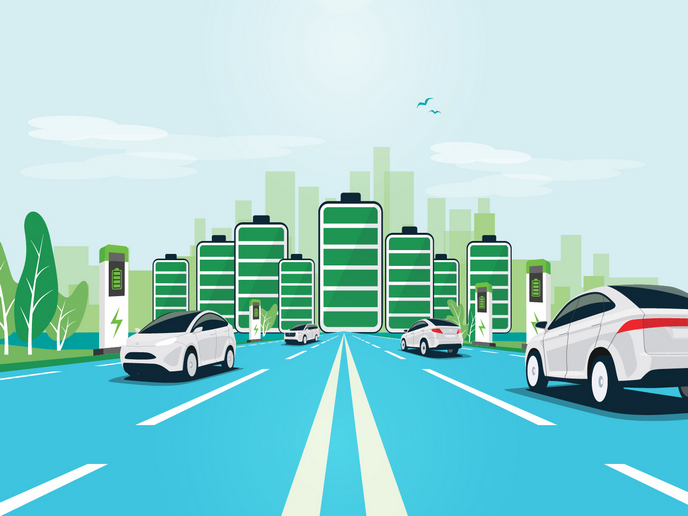Enabling a successful transition towards electric-powered road transport
Transport is an essential component of robust societies, connecting people, underpinning trade, and fostering growth. However, it is a major environmental burden. In Europe alone, the transport sector is responsible for around one quarter of greenhouse gas emissions, significantly hindering the EU’s goals towards climate neutrality. The European Green Deal emphasises that transport must become ‘drastically less polluting,’ which translates into a 90 % emissions reduction by 2050 compared to current levels if genuine progress is to be made. Furthermore, the EU Sustainable and Smart Mobility Strategy, adopted in 2020, put European transport on track for a future with significantly reduced emissions. The shift towards low- or even zero-emission mobility is a precondition for the success of Europe’s carbon neutrality goals. Electrification of road transport vehicles is therefore a necessary step towards improving air quality and reducing CO2 emissions in European cities, in line with European green policy objectives.
Accelerating the uptake of electric vehicles
Against the background, electric vehicles (EVs) are emerging as the solution that will help Europe reduce its reliance on conventional fuels. Sales of EVs soared in Europe in 2022, showing that Europeans are onboard with the effort to transition to a climate-neutral society via vehicle electrification. To get there, however, major barriers to wider EV adoption must be lifted – namely battery performance, affordability, and charging infrastructure. The 10 EU-funded projects featured in this Results Pack represent a wide range of EU efforts to overcome the challenges facing EV uptake. They showcase the latest research and innovation, as well as developments and applications related to e-mobility, with results that plot a clear trajectory towards the envisaged clean, green transport sector.
Pushing the e-mobility frontier: 10 ways
Long charging time, limited driving range, and high cost are among the most significant issues associated with EV batteries, which in turn affect the wider adoption of EVs. DEFACTO focused on bringing down the current cost of battery packs by improving energy density and streamlining the manufacturing process. Lithium-ion (Li-ion) batteries, specifically, are at the heart of EV technology. SAFELiMOVE addressed the drawbacks of current Li-ion batteries, designing an innovative battery that will improve the performance of EVs and advance Europe’s position in the EV battery supply chain. MODALIS2 developed a modelling toolchain that will help assess the effects of introducing new materials in the creation of next-generation Li-ion battery cells. COBRA developed a cobalt-free Li-ion battery technology that overcomes many of the current EV battery shortcomings – namely performance, cost, and environmental impact. The development of new technologies is an essential aspect of the transition towards next-generation EVs. FITGEN worked on developing and prototyping new components, systems, and architectures that will lead to improved EV performance and user experience. URBANIZED introduced innovations to improve urban logistics, focusing on the powertrain, the cargobody, as well as fleet management solutions. EVC1000 developed innovative components intended to increase EV driving range and improve vehicle stability. The scope of INCIT-EV was to develop new charging technologies based on user preferences inferred via mobile sensor equipment built on cutting-edge neuroscience techniques. UPSCALE designed AI software that improves the speed of simulated safety and performance tests, while the focus of Multi-Moby was the development of active safety systems using cloud data and vehicle-to-everything connectivity.



